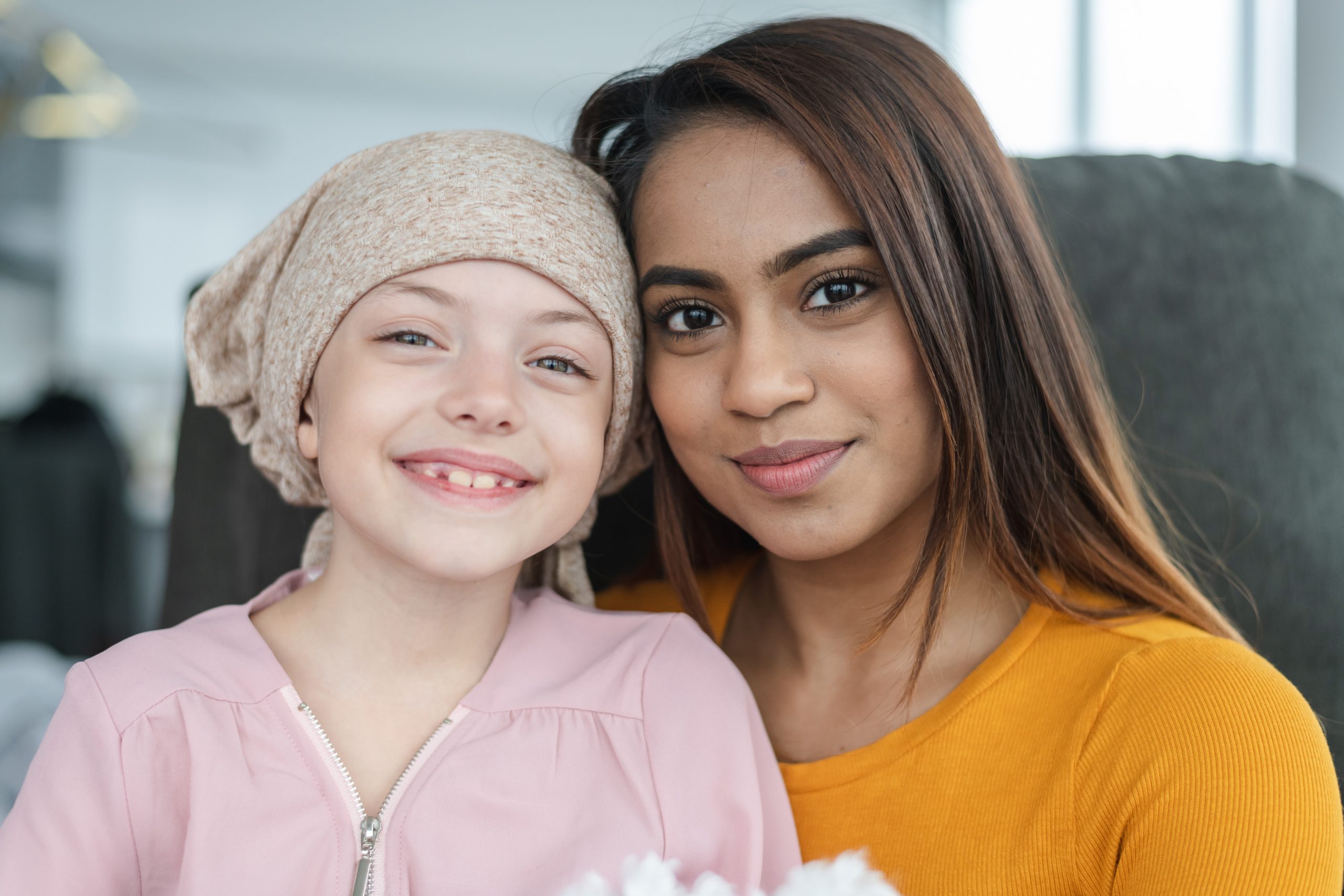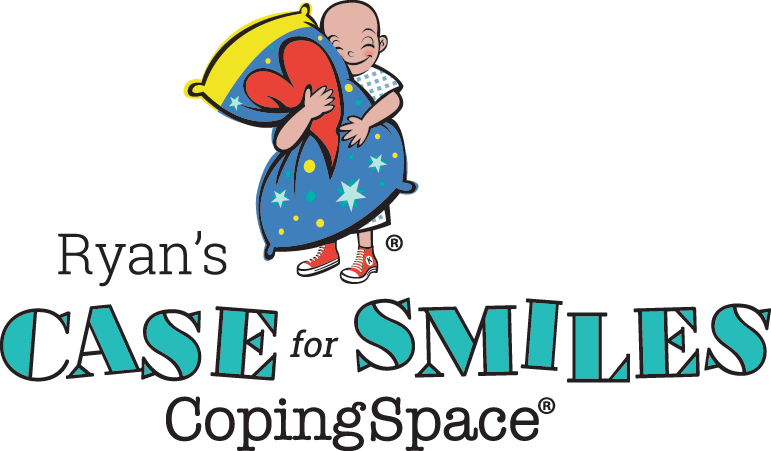BLOG
Supporting Teen Siblings After a Brother or Sister’s Cancer Diagnosis
 You likely know, or have experienced, how a diagnosis of pediatric cancer can turn family life upside down and create challenges for siblings. This is even more true for teen siblings who are already going through a turbulent time. But what you may not know is how best to help them cope.
You likely know, or have experienced, how a diagnosis of pediatric cancer can turn family life upside down and create challenges for siblings. This is even more true for teen siblings who are already going through a turbulent time. But what you may not know is how best to help them cope.
Social support is one tool we can use to stabilize children after a brother or sister’s diagnosis of cancer and decrease the risk of post-traumatic stress or other difficulties. Social support can include things such as time, money, information, love, or affection that help someone get through a tough time.
But what type of support is best? To answer this question, we felt it best to go straight to the source. In our recent study, we at the University of Utah, College of Nursing interviewed twenty-four adolescent siblings (12-17 years) who had a brother or sister diagnosed with cancer in the last two years, or who were actively receiving treatment. We asked them about the people they found most supportive, and to give us examples of the most helpful support each person gave during the cancer diagnosis and treatment period.
Who Is Most Helpful to Adolescents Whose Sibling Has Cancer?
We found that siblings identified family members (mothers, fathers, brothers, and sisters) most frequently, along with one or two close friends, as most supportive. Teachers, neighbors, or other extended family were also mentioned.
How to Best Support Siblings After a Brother or Sister’s Cancer Diagnosis
Emotional support and companionship were the two most identified types of support siblings found helpful. Siblings shared how  people showed they cared by checking in regularly and making time to let them express their feelings. They also told us how companionship allowed them fun and distracted them from the cancer diagnosis. Siblings described companionship as time with friends, being together as a family, and the ability to keep up their interests such as sports activities and clubs. Companionship with their brother or sister with cancer was also important, as they wanted to feel closer to them and more involved in their care.
people showed they cared by checking in regularly and making time to let them express their feelings. They also told us how companionship allowed them fun and distracted them from the cancer diagnosis. Siblings described companionship as time with friends, being together as a family, and the ability to keep up their interests such as sports activities and clubs. Companionship with their brother or sister with cancer was also important, as they wanted to feel closer to them and more involved in their care.
Other Ways to Support Teen Siblings Whose Brother or Sister Has Cancer
Siblings also gave examples of several other types of social support. Informational support was important in grounding them and helping them know what to expect for their brother or sister going through treatment. While some siblings went online to find information when they wanted to know more about cancer or treatments, most wanted information to come from parents or other trusted sources in their social circles.
Instrumental support was important as well. Examples of instrumental support included help with homework and rides to music lessons or sports activities. One especially important instrumental support was parents linking siblings to other resources for help such as a therapist or counselor at school. Parents also facilitated meals and overnight stays with friends or family during extended treatments. Once the connection to others was made, many of these people became important sources of support to siblings throughout the treatment period.
How Do Teens Support Their Family After A Sibling Is Diagnosed with Cancer?
In addition to the impact of their sibling’s cancer diagnosis on themselves, teens talked about feeling stressed knowing their parents were worried. They also talked about their concerns for their brother or sister with cancer. To cope with this, some in our study went out of their way to find out how their parents were doing, using other relatives to keep tabs on their immediate family members. Sibling then talked about how they worked to support their parent or sick sibling by trying to spend more time with them or be more patient and forgiving.
 Older siblings described spending time with their brothers and sisters as especially important. They wanted to keep them close and watch out for them. Additionally, younger brothers and sisters helped by providing distraction through play and their naivete of the situation. Time with the brother or sister with cancer was also helpful as then siblings were able to see their improvement over time and feel more connected.
Older siblings described spending time with their brothers and sisters as especially important. They wanted to keep them close and watch out for them. Additionally, younger brothers and sisters helped by providing distraction through play and their naivete of the situation. Time with the brother or sister with cancer was also helpful as then siblings were able to see their improvement over time and feel more connected.
How Teens Stay in Touch When a Sibling Has Cancer
In our study, we also explored how siblings kept in touch with the important people in their network. While in-person interactions were preferred, siblings enjoyed video calls with parents, siblings, and friends as a good alternative. Most siblings indicated that their use of social media and technology had increased in the time since their brother or sister was diagnosed. They shared how time spent online was both useful in keeping in touch with their friends and family, and as a distraction.
Social media and the internet, however, should be used with caution. In our study we also surveyed siblings about their online experiences, connection to friends and family, and post-traumatic symptoms. We found an association between positive online experiences and increased connection to friends and family. Yet, there was also an association between post traumatic symptoms and higher levels of positive online experiences. It is unclear whether using social media and online activity contributed to this, or whether siblings with higher levels of post-traumatic stress were seeking support online. More research is needed to understand these interactions and relationships.
Helping Teens After a Sibling Is Diagnosed with Cancer
Overall siblings wanted to be involved and aware of both the good and bad things happening with their brother or sister’s cancer. They also seemed to feel social support created security in their relationship with others. Teen siblings appreciated understanding and leeway in their emotions dealing with the effects of cancer in their own lives. Assistance in maintaining a connection to friends, activities, and interests was also important. Lastly, knowing they were cared for through check-ins, expressions of caring, and being part of the family were most important and helpful to siblings. In additional studies, this has been found true for other diagnoses as well.
So, if you’re looking to help a sibling of a child with a serious illness or injury, know there are many ways you can provide support. For additional information, visit Coping Tips for Siblings for advice, resources and more.
**Statements on this blog reflect the author’s personal opinion and do not represent the views of Ryan’s Case for Smiles. They are also not to be viewed as personal medical advice, but rather for the purpose of general knowledge. The reader should speak to their healthcare team, or their child’s, for medical advice.**
 About the Author: Sarah E. Wawrzynski, BSN, CCRN, is an experienced pediatric critical care nurse at Primary Children’s Hospital and PhD candidate in nursing at the University of Utah. Her program of research focuses broadly on the impact of pediatric chronic and life-limiting disease on the health and well-being of the connected family members. She hopes to find meaningful and adaptive ways to support families in navigating these challenges to improve the health and adjustment of the family unit in whatever structure it occurs. When she is not working, Sarah loves to be outside, hiking or biking with her two sons.
About the Author: Sarah E. Wawrzynski, BSN, CCRN, is an experienced pediatric critical care nurse at Primary Children’s Hospital and PhD candidate in nursing at the University of Utah. Her program of research focuses broadly on the impact of pediatric chronic and life-limiting disease on the health and well-being of the connected family members. She hopes to find meaningful and adaptive ways to support families in navigating these challenges to improve the health and adjustment of the family unit in whatever structure it occurs. When she is not working, Sarah loves to be outside, hiking or biking with her two sons.
